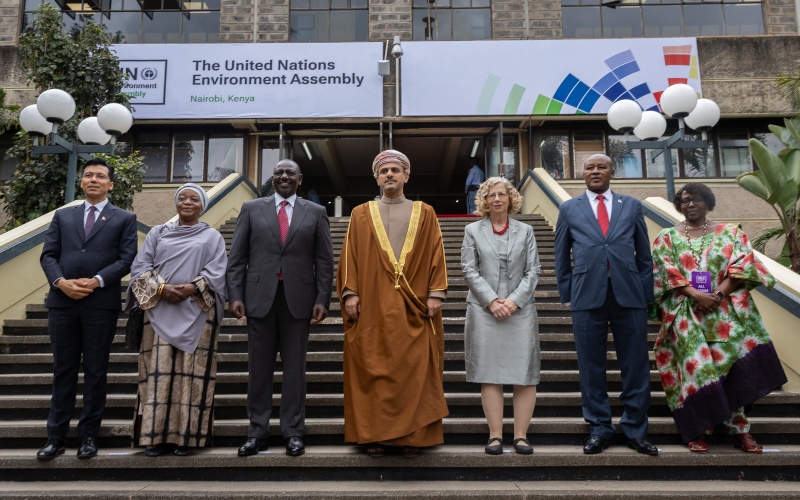Communities to earn cash for protecting forests under new Bill

The Bill outlines a payment-for-ecosystem services model where residents and landowners who engage in conservation would receive incentives.
People living around forested areas could soon start receiving direct financial benefits for protecting the environment if Parliament approves a new Bill.
The Forest Conservation and Management Bill, 2025 has been introduced with a proposal to compensate forest-edge communities for their role in safeguarding ecosystems.
More To Read
- MPs outline conditions to be met before forests can be degazetted
- New KIPPRA report exposes the hidden weaknesses crippling Kenya’s forest industry
- Thousands set to get land titles as state seeks to degazette over 6,700 hectares of forest
- Court bans eucalyptus planting near water sources nationwide
- National Assembly lifts ban on forest harvesting at Eldoret International Airport, Boma Airstrip
- KFS refutes land grabbing claims at Menengai Crater, says boundary gazetted
The Bill outlines a payment-for-ecosystem services model where residents and landowners who engage in conservation would receive incentives.
The responsibility of designing the scheme will fall on the Kenya Forestry Research Institute.
“The institute shall, in collaboration with stakeholders, establish a framework for the payment for ecosystem service schemes in public, community and private forests,” the Bill reads.
The Ruto government has consistently pushed for increased tree cover and pledged to reward citizens who participate. So far, two nationwide tree planting campaigns have been rolled out as part of that commitment.
To guide the payments, both the Kenya Forest Service and Kenya Forestry Research Institute (KEFRI) will be required to conduct a comprehensive valuation of forest resources.
The study will capture services such as carbon absorption, water catchment protection and soil stability, which will form the basis for compensation.
Operational rules for the scheme will be drawn up by Kefri and handed over to the cabinet secretary in charge of forestry, who will then incorporate them into policy in consultation with the National Treasury.
Beneficiaries are expected to be forest-side communities, especially those organised in Community Forest Associations, who would earn payments for preserving water sources, curbing emissions and maintaining healthy ecosystems.
The introduction of the Bill comes at a time when disputes over questionable human activities in Karura and Ngong forests have heightened concerns about forest protection.
Beyond community incentives, the law also proposes a reorganisation of the Kenya Forest Service. It grants the forestry cabinet secretary the power to classify a section of its officers as uniformed and disciplined staff.
“The amendment also introduces mandatory training and oath of office for designated staff,” the Bill adds.
Currently, that designation is made on the advice of the interior ministry.
The draft law also intends to resolve the long-standing gap on forest use for development projects. If approved, the Kenya Forest Service would be authorised to issue easements within public forests for public roads, utility lines and other key infrastructure.
On enforcement, the Bill raises penalties to discourage illegal activities. Anyone caught exporting or importing restricted forest products will face a Sh5 million fine, a three-year jail term, or both.
Offences such as cutting trees without permits, grazing in protected areas, cultivating land, building unauthorised structures or smoking in forests will attract fines of up to Sh1 million, an increase from the current Sh100,000.
Other outlawed actions that will be punished under the proposed law include setting fires, building roads without approval, carrying logging tools unlawfully, interfering with forest boundary marks and collecting honey or beeswax without licences.
The Bill also seeks to restructure forestry institutions. It creates the Kenya Forest Academy to provide training for forest officers and sets up the Office of the Director of Forest Regulation to oversee compliance, standardise practices and ensure certification.
Top Stories Today













































